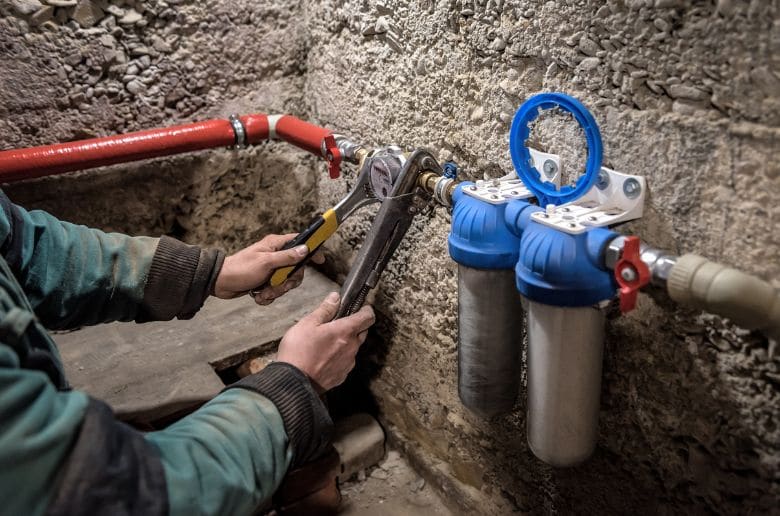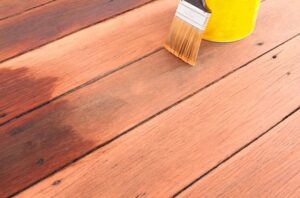Maintaining your home’s infrastructure is essential to ensuring its longevity and functionality. One aspect often overlooked until problems arise is the plumbing system, particularly the pipes that carry water throughout your home. Knowing when and why to upgrade your home’s pipes can save you from costly repairs, water damage, and inconvenience.
Signs Your Pipes Need Upgrading
Age of Pipes
The age of your home can be a significant indicator of whether your pipes need upgrading. Older homes built several decades ago often have pipes made of galvanized steel, prone to corrosion and rust over time. If your home is over 50 years old and still has original plumbing, it’s likely time for an upgrade.
Regular Leaks
If you notice frequent leaks or bursts in your plumbing system, it indicates potential deterioration of your pipes. Rather than continuously repairing leaks, investing in new pipes can provide a more permanent solution.
Low Water Pressure
Should you observe a decline in water pressure across your household, it could suggest the existence of mineral buildup or corrosion within your plumbing system. This buildup restricts water flow and may eventually cause clogs or leaks. Consider upgrading to newer pipes to enhance water pressure and overall flow.
Discolored Water
If your water has an off-colour appearance or tastes metallic, it may result from rust or corrosion in your pipes. This can impact the water quality and suggest that your pipes are deteriorating, possibly necessitating replacement.
Lead Pipes
Homes built before the 1980s may have lead pipes, which pose serious health risks, especially for children and pregnant women. If your home has lead pipes, upgrading to safer materials like copper or PEX (cross-linked polyethylene) is crucial for your family’s health.
Regular Clogs
Frequent blockages in your drains or toilets might indicate deteriorating pipes. Old pipes can develop internal corrosion and mineral buildup, leading to frequent blockages. Upgrading to newer pipes with smoother interiors can reduce clogs and improve drainage.
Why Upgrading is Necessary
Improved Water Quality
New copper, PEX, or PVC pipes provide cleaner water by eliminating rust, corrosion, and contaminants from old pipes. This ensures better water quality for drinking, bathing, and cooking.
Enhanced Durability
Today’s pipes are engineered to endure over time, utilizing materials such as copper and PEX that provide outstanding durability and corrosion resistance. Opting for new pipes can help prevent expensive repairs and replacements later.
Improved Water Pressure
Upgrading your pipes can enhance water pressure across your home, boosting the performance of showers, faucets, and appliances such as dishwashers and washing machines.
Preventing Water Damage
Aging and deteriorating pipes are susceptible to leaks and bursts, which can cause substantial water damage to your home’s structure, furniture, and possessions. Upgrading to new pipes reduces the risk of water-related disasters.
Health and Safety
If your home has lead pipes or pipes made from other hazardous materials, upgrading to safer options ensures the health and safety of your family, especially children and pets, who are more susceptible to lead exposure.
Enhanced Energy Efficiency
Modern plumbing systems are engineered for improved energy efficiency, minimizing heat loss in hot water pipes and reducing energy expenses.
Types of Pipe Materials
Copper Pipes
Renowned for their durability, corrosion resistance, and extended lifespan, copper pipes are a favoured option for plumbing enhancements. Moreover, their recyclability makes them sustainable and environmentally friendly.
PEX (Cross-linked Polyethylene) Pipes
PEX pipes are renowned for their flexibility, simple installation process, and durability against chemicals and corrosion. They suit hot and cold water supply lines and offer excellent freeze resistance.
PVC (Polyvinyl Chloride) Pipes
PVC pipes are commonly used in drainage and waste systems because they are lightweight, easy to install, and resistant to corrosion and chemicals.
CPVC (Chlorinated Polyvinyl Chloride) Pipes
Like PVC pipes designed for hot water supply lines, CPVC pipes offer high-temperature resistance and are suitable for residential plumbing upgrades.
Galvanized Steel Pipes
Although they were popular in the past, galvanized steel pipes are now less favoured because they are prone to corrosion and rust with prolonged use. If your home has galvanized pipes, upgrading to modern materials is recommended.
Hiring a Professional
Before upgrading your home’s pipes, it’s important to seek guidance from a licensed plumber or reputable plumbing contractor. A professional can assess your current plumbing system, recommend suitable pipe materials, and ensure proper installation according to local building codes and regulations.
Expert Assessment
It is crucial to consult a licensed plumber to thoroughly assess your plumbing system. They can identify potential issues, recommend upgrades, and provide insights on maintaining optimal performance.
Preventive Maintenance
Engaging a plumber for regular maintenance can proactively prevent significant plumbing issues. Scheduled inspections, pipe cleaning, and leak detection can catch issues early, reducing the need for emergency plumber services.
Emergency Preparedness
Although precautions are taken, remaining prepared for unforeseen emergencies is crucial. Having the contact information of an emergency plumber readily available ensures quick response and resolution during unexpected plumbing crises, such as burst pipes or severe leaks.
Quality Installation
Professional plumbers ensure new pipes are installed correctly and meet industry standards and local codes. Correct installation not only avoids immediate problems but also adds to the long-term dependability of your plumbing setup.
Warranty and Guarantee
Trustworthy plumbing professionals frequently offer warranties and assurances covering their craftsmanship and materials. This reassures homeowners that any issues resulting from the installation or upgrade will be promptly rectified at no additional expense.
Conclusion
In conclusion, upgrading your home’s pipes is not just a matter of convenience but a crucial step in maintaining the integrity and functionality of your plumbing system. By promptly addressing aging or deteriorating pipes, you can safeguard water quality, prevent costly leaks and water damage, ensure your family’s safety, and improve overall water efficiency.
You can mitigate potential risks and enjoy a reliable plumbing system for years through proactive measures such as regular inspections, consulting with licensed plumbers, and investing in modern pipe materials like copper, PEX, or PVC. Additionally, incorporating preventive maintenance and having access to emergency plumber services can further bolster your home’s resilience against unexpected plumbing emergencies.
Remember, a professional plumber’s expertise is invaluable in assessing your plumbing needs, recommending appropriate upgrades, and ensuring quality installation that complies with industry standards and local regulations. Furthermore, warranties and guarantees provided by reputable plumbers offer added assurance, giving you peace of mind regarding the durability and performance of your upgraded plumbing system.
Enhancing your home’s piping system is ultimately an investment in its sustained well-being and effectiveness. By staying proactive, informed, and relying on professional plumbing services, you can enjoy a seamless and trouble-free plumbing experience while enhancing your home’s overall value and comfort.





